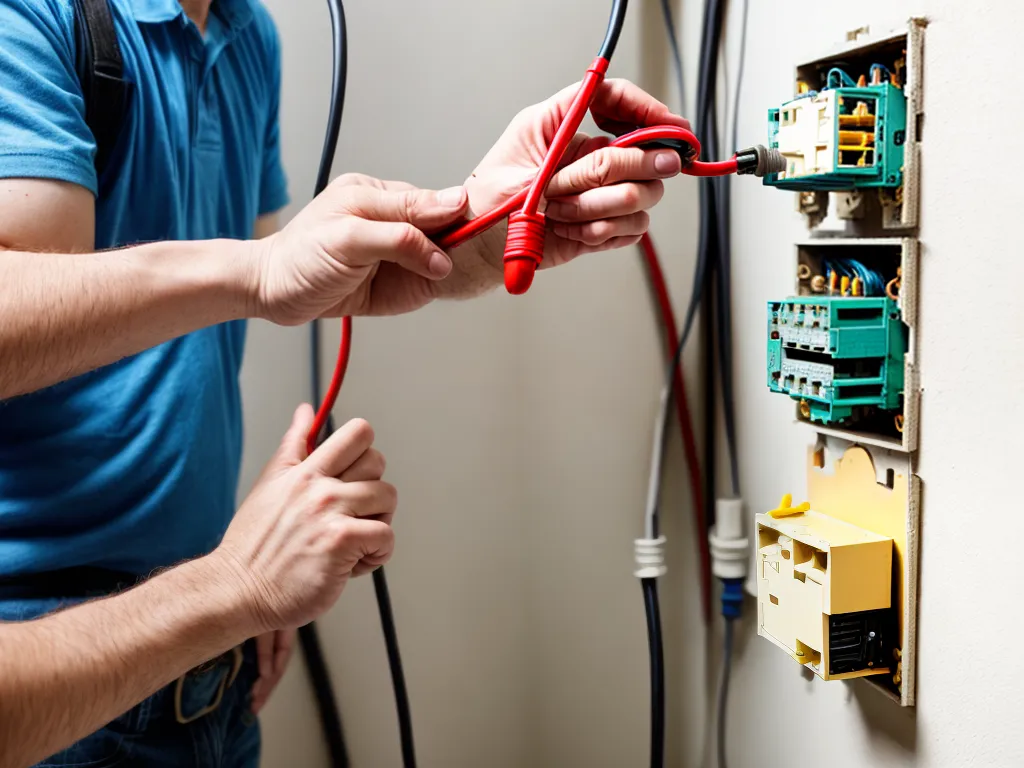
Updating Residential Wiring to Meet Current Safety Standards
Introduction
Upgrading the electrical wiring in your home is an important investment to ensure your family's safety. As wiring ages and building codes evolve, older homes may not meet the latest safety standards for preventing electrical fires, shocks, and electrocutions. In this comprehensive guide, I will discuss the key reasons for upgrading your residential wiring, outline the national electrical code requirements, explain the wiring upgrade process step-by-step, and provide cost estimates so you can budget for this crucial home improvement project.
Reasons for Upgrading Residential Wiring
There are several important reasons why homeowners should consider upgrading the electrical wiring in their houses:
Prevent Electrical Fires
Outdated wiring and overloaded circuits are the leading causes of residential electrical fires. Upgrading to modern wiring ensures the electrical load is distributed properly throughout your home's circuits. This significantly reduces the fire risk.
Eliminate Electrical Shocks and Electrocution Risks
Faulty, exposed, or substandard wiring can cause dangerous electrical shocks. Upgrading the wiring eliminates shock risks by enclosing all wires properly and keeping high voltage wires separated from low voltage.
Accommodate Higher Electricity Demands
Modern homes have far more electrical devices than decades ago. Upgrading the wiring ensures your home's electrical system can meet today's higher power demands safely.
Improve Energy Efficiency
Newer wiring is better insulated and loses less electricity during power transfers. Upgraded wiring enhances the energy efficiency of electrical devices.
Increase Home Resale Value
Updated wiring is an attractive feature for home buyers and can increase your home's value. Outdated wiring can discourage buyers due to safety concerns.
National Electrical Code Wiring Requirements
The National Electrical Code (NEC) publishes national safety standards for electrical installations. Residential wiring must meet the latest NEC requirements:
-
Amperage - Wiring must handle the electric load of all circuits safely. Breakers must trip before amperage exceeds wire capacity.
-
Overcurrent protection - All circuits require resettable circuit breakers. Fuses are no longer up to code.
-
Grounding - All wiring must have equipment grounding conductors. Ungrounded, two-prong outlets are prohibited.
-
GFCI protection - GFCI (ground fault circuit interrupter) outlets or breakers are required in bathrooms, kitchens, laundry rooms, and other locations prone to electrical shocks.
-
AFCI protection - AFCI (arc fault circuit interrupter) breakers help prevent electrical fires and are required for most household circuits.
-
Box fill - The wires inside boxes and conduits cannot exceed set fill capacity. This prevents overheating.
The Residential Wiring Upgrade Process
Upgrading your home's wiring is a major project that requires professional electricians. Here is an overview of the end-to-end process:
Initial Evaluation
An electrician will evaluate your existing wiring and electrical panel to determine required upgrades. Load calculations help identify any circuits that need higher amperage.
Permits and Planning
Electrical permits are usually required for rewiring projects. Your electrician will handle the permitting process. Proper planning minimizes rewiring labor and costs.
Circuit Replacement
The electrician will systematically replace old wiring with new circuits meeting NEC requirements. New conduit and boxes may also be installed.
New Electrical Panel
Your home's main electrical panel will likely need an upgrade to support added circuits and meet amperage demands. New lightning and surge protection may be added.
Install Safety Features
Your upgraded wiring system will integrate modern safety features like AFCI/GFCI breakers, tamper-resistant outlets, and adequate grounding.
Testing and Inspections
The electrician will thoroughly test all new wiring to ensure proper function. Local inspections also confirm compliance with building codes.
Finishing Touches
Walls, ceilings, and floors will be repaired from the rewiring access. New switches, outlets covers, and light fixtures will be installed.
Cost Estimate for a Rewiring Project
The cost of rewiring a house depends on factors like home size, number of circuits, and type of wiring. Here are some typical estimates:
-
Small 2 bedroom home: $4,000 to $8,000
-
Large 4 bedroom home: $10,000 to $15,000
-
Running wiring for additional circuits: $800 to $1,200 per circuit
-
New 100 amp main electrical panel: $1,500 to $3,000
-
New 200 amp main electrical panel: $2,500 to $4,500
Many electricians provide free quotes for required work after assessing your home's wiring needs. Upgrading gradually over time can spread out costs.
Is It Time to Upgrade Your Home's Wiring?
If your home is very old or still has knob and tube wiring, an upgrade should be a top priority. Newer homes may just need minor upgrades like GFCI outlets in kitchens and bathrooms. Contact a qualified electrician to evaluate your residential wiring and advise on required updates to protect your family. Though not cheap, rewiring and electrical upgrades are extremely worthwhile investments in your home's safety.